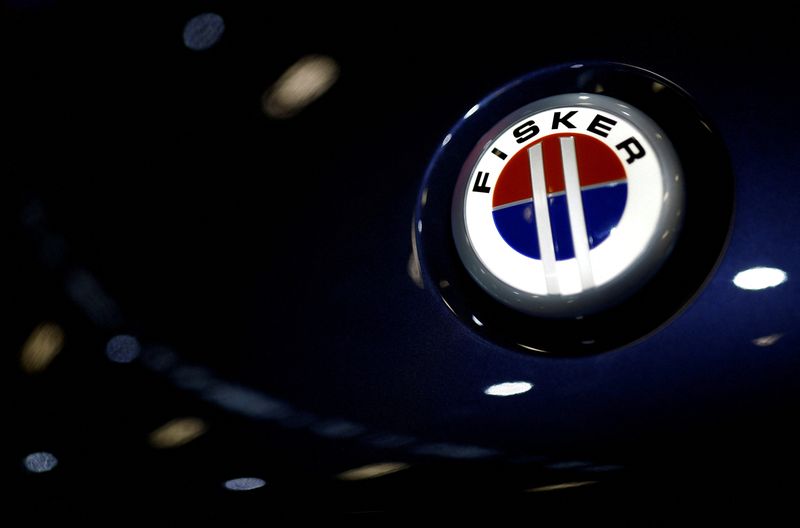By Akash Sriram and Abhirup Roy
(Reuters) -Electric-vehicle startup Fisker Inc on Monday flagged increased orders for its sports utility vehicle Ocean and maintained its production forecast for the year, sending its shares soaring as much as 36%.
EV makers, like the broader auto industry, have been struggling with production bottlenecks sparked by the pandemic and many now face waning demand amid rising interest rates and recession fears.
But Fisker reiterated its 2023 production target of 42,400 vehicles with its manufacturing partner Magna International (NYSE:MGA)'s Austrian unit, despite certain suppliers still facing challenges.
Raymond James analyst Pavel Molchanov called the stock rise "a classic example of a relief rally," adding, "I think there were some fears that the production startup of the sport utility vehicle Ocean was getting delayed."
Molchanov said he expects 2023 production of about 30,000 cars. Garrett Nelson, an analyst at CFRA Research, said the target was "borderline ludicrous given the struggles of EV peers and Fisker's production of 56 vehicles so far."
Chief Executive Henrik Fisker told analysts on a conference call that Magna was ready to produce 20 cars a day, with a "strong" ramp-up in the second quarter.
The company had restricted production "on purpose," he said, as it expects testing for homologation — the certification for roadworthiness — to be complete by March. That will be followed by regulatory approvals and deliveries.
PRICE ADVANTAGE
Helping Fisker sustain demand is its attractive pricing. Its Ocean SUV starts at $37,499 compared with the Model Y from Tesla (NASDAQ:TSLA) that retails for at least $54,990 after recent price cuts. Rivian Automotive Inc's R1S SUV is priced around $78,000.
Lucid Group Inc, which sells its Air Pure sedans for $87,400, forecast lower-than-expected 2023 production last week and reported a major drop in orders during the December quarter.
Fisker said reservations for the first model of Ocean rose to more than 65,000 as of Feb. 24, from over 62,000 at the end of October.
"We were well-priced from the beginning," CEO Fisker told Reuters. "That's something that, I think, now is bearing fruit."
The company also forecast a gross margin range of 8% to 12% and positive earnings before interest, tax, depreciation and amortization this year, driven partly by lower upfront costs as Fisker, unlike its peers who make their own cars, depends on contract manufacturing.
Fisker, which expects expenses of up to $610 million this year, had cash and cash equivalents of $736.5 million at the end of December, down from $824.7 million a quarter earlier.

The company, however, reported a wider-than-expected quarterly loss. Its net loss stood at 54 cents per share, compared with analysts' average estimate of a 42-cent loss, according to IBES data from Refinitiv.
Fisker shares, which have fallen 82% from their record high in March 2021, were up 27.6% at $7.25 on Monday afternoon, off an earlier high at $7.75.